Infomorphism
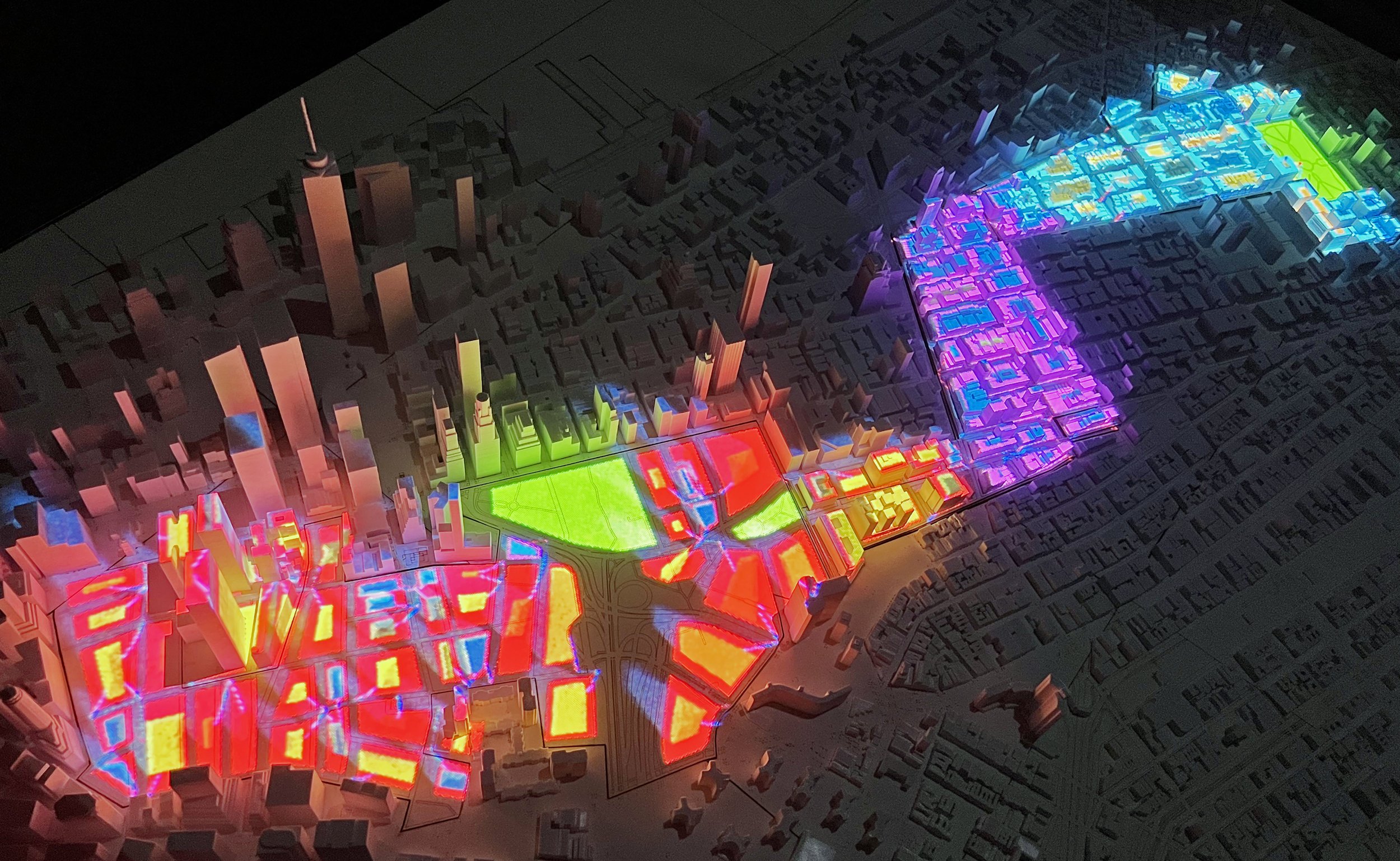
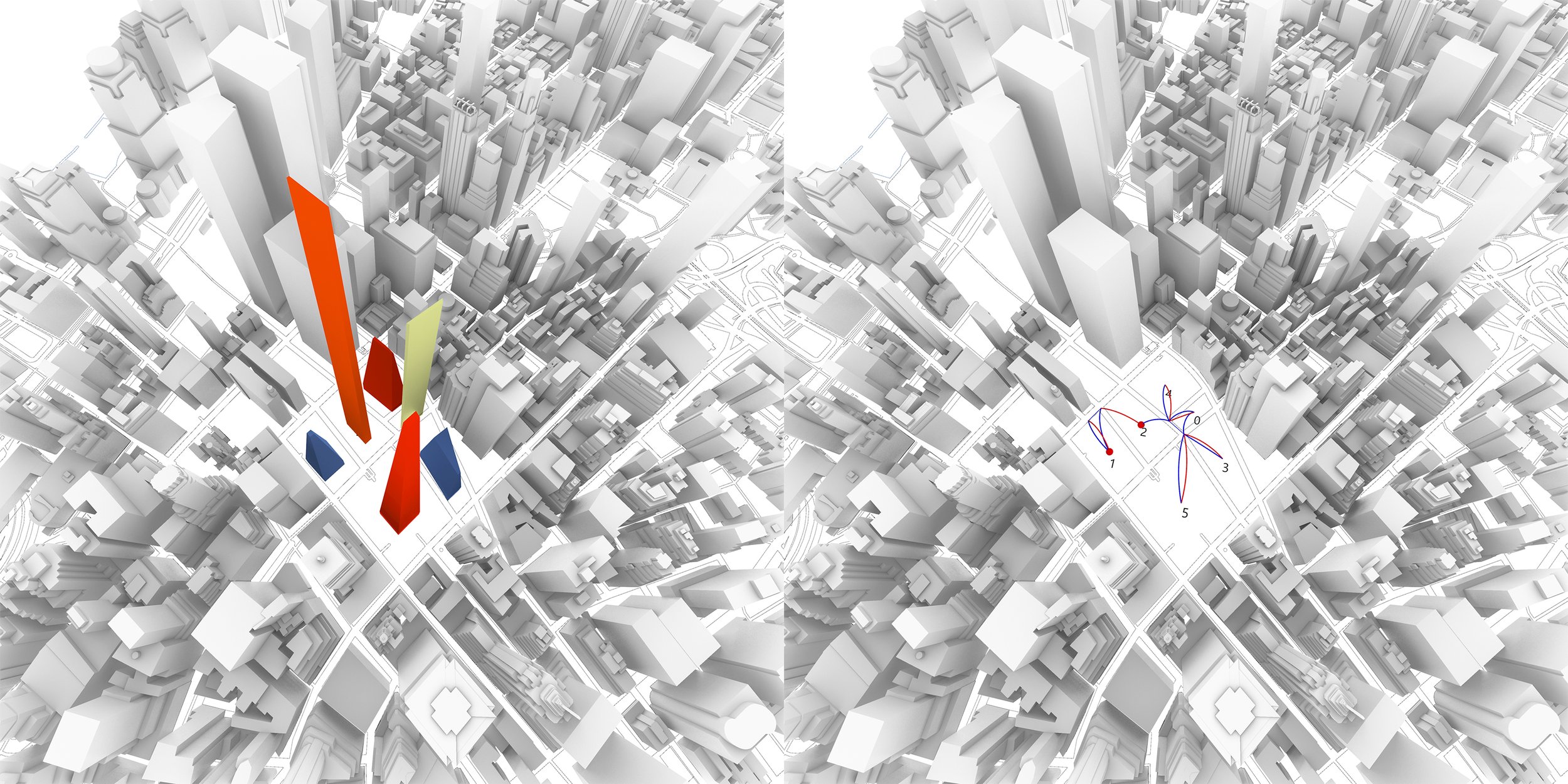
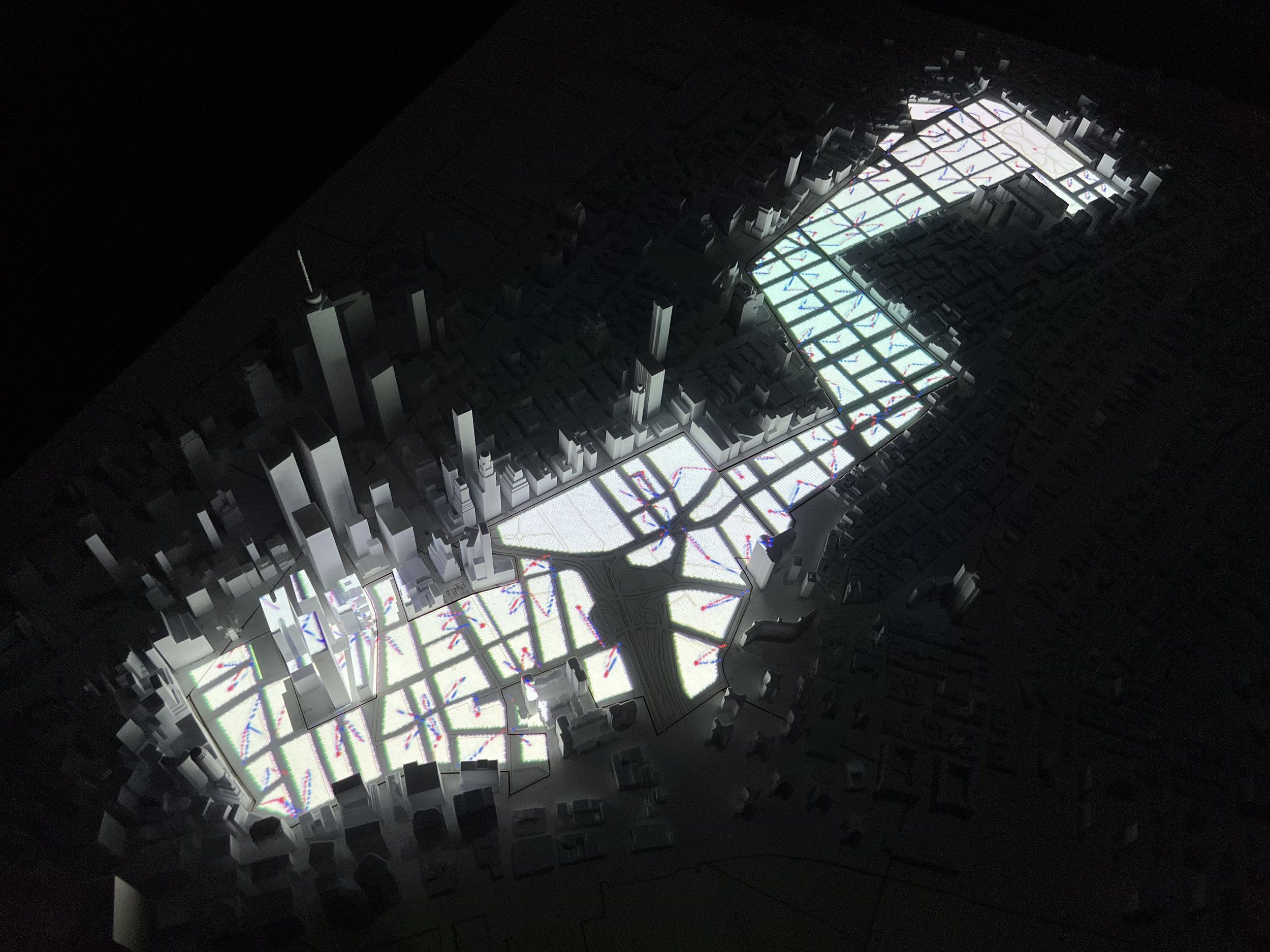
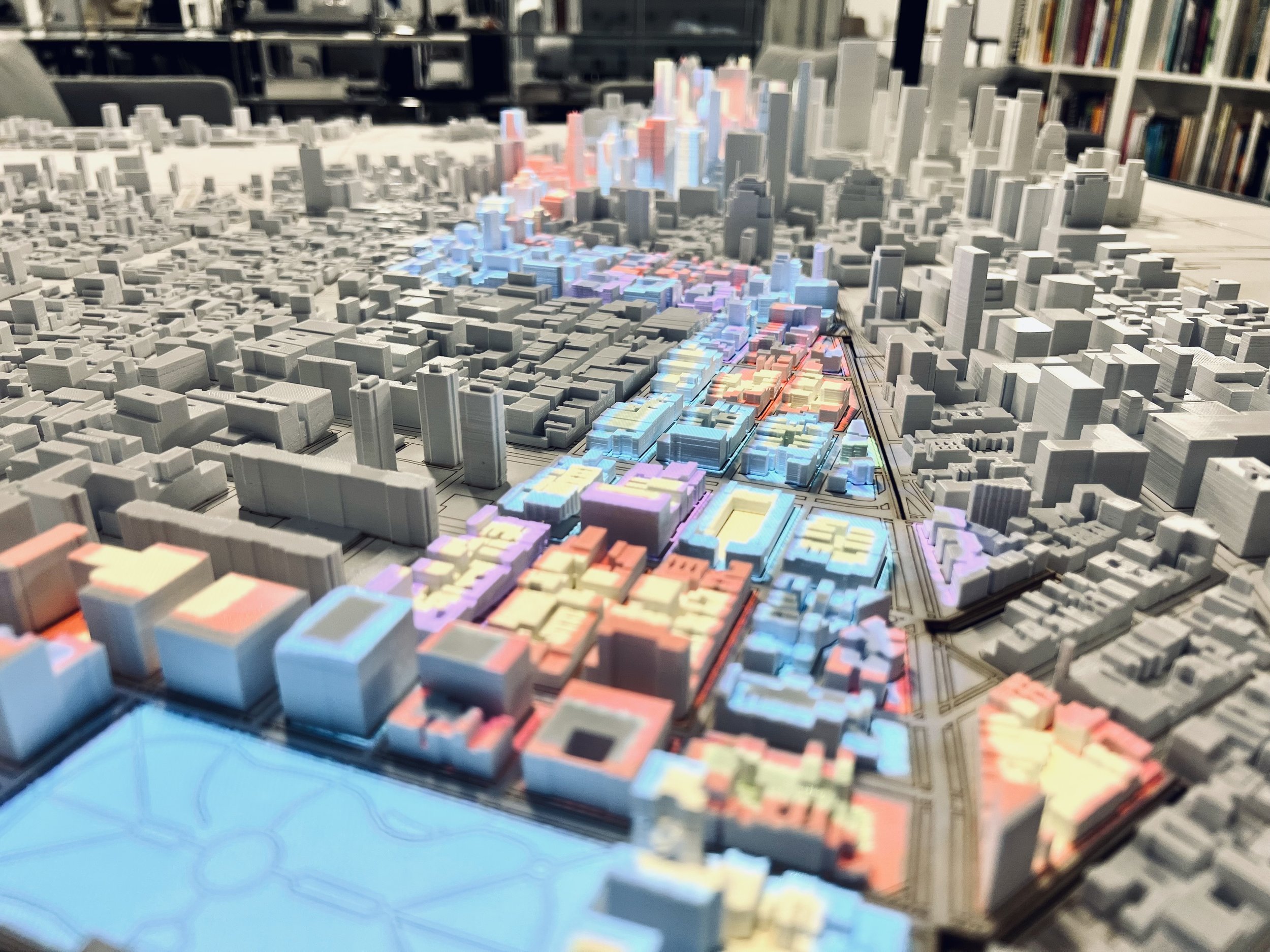
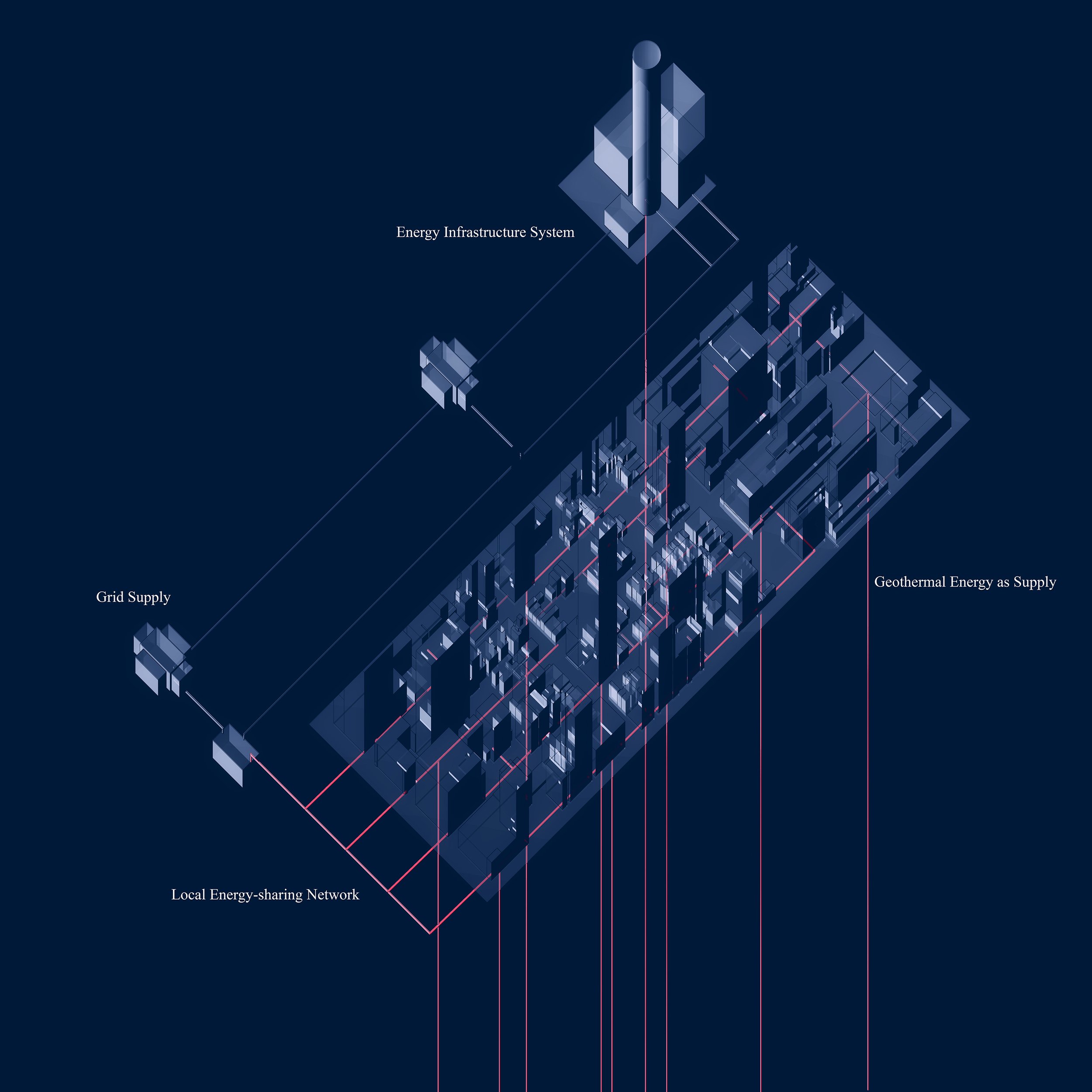
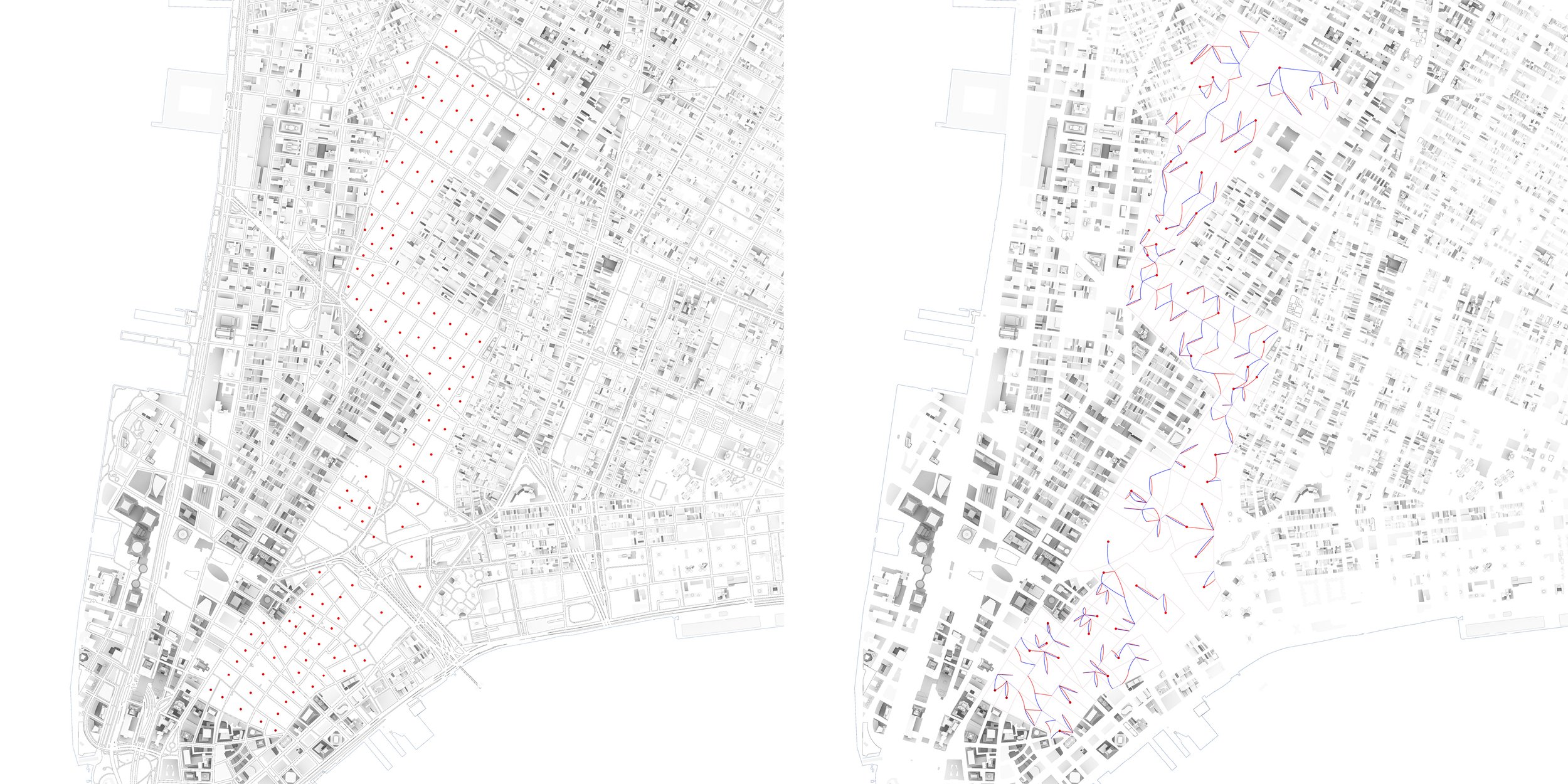
If, in the future, buildings are to be generating, storing, and sharing renewable energy locally, what will the city look like?
Infomorphism is a hybrid Urban and Energy planning framework that considers the principles of ZEBs (Zero Energy Buildings) and derives energy-based urban planning regulations for cities that prioritize local renewable energy utilization. It combines knowledge from the fields of urban planning and energy grid planning in an attempt to understand the relationship that can be formed between the form of a city and its ability to metabolize local renewable energy.
With the Infomorphism project, we look at renewable energy integration at the level of Urban Planning. We are working under the assumption that a city of autonomous buildings, through its form and infrastructure, can collectively minimize the number of resources required for its operation by enabling the harnessing, local processing, and distribution of renewable resources. Infomorphism is comprised of three computational models that collectively optimize urban form and local energy exchange networks to maximize a city's ability to absorb, store, and locally share renewable energy as well as reduce the operational uncertainty in power systems.
The first model is a parametric optimization model that maximizes renewable energy absorption based on the configuration of planning envelopes. The second model is an energy quantification model that includes a simulation and evaluation algorithm of inverter-based renewable energy as supply as well as an energy demand forecasting algorithm. The third model is a network optimization model for energy planners to maximize renewable energy exchange efficiency and evaluate the energy performance of local energy exchange networks. The purpose of Infomorphism is to optimize city/community/neighborhood form and local energy exchange networks and reduce the operational uncertainty in power systems via local renewable energy integration.
This project has both technical and social implications. The optimization algorithms that are mentioned above are working under the assumption that renewable energy generated in buildings belongs to the city as a whole. The network optimization algorithms privilege the sharing of energy between buildings. Renewable energy is understood as a common - in the way Elinor Ostrom understands the commons - and infomorphism is in essence “governing” this common so that it can give access to renewable energy for all.
This opens up plenty of questions regarding the future of planning such as: Can we introduce renewable energy rights as part of the planning process? Can we consider zoning based on local energy exchange networks? Our work so far has identified that we can cut down on the cost of renewable energy integration to half if we introduce the “renewable energy as a common” model.
Project Date: 2019-2023
Researchers: Alexandros Tsamis, Fengqi Li, Haolin Yang, Xinwei Zhuang, and Kristen R.Schell
Exhibition:
Alexandros Tsamis with Fengqi Li and Kristen Shell. Title: Planning with Energy. Infomorphism: A CASE for New York City. The 9th Shenzhen-Hong Kong Urban & Architecture Bi-City Biennale Shenzhen, China. December 2022
Publications:
Fengqi Li, Kristen R. Schell, Haolin Yang and Alexandros Tsamis. Infomorphism: An Urban Planning Framework for Local Renewable Energy Integration. In Building Performance Analysis Conference and SimBuild co-organized by ASHRAE and IBPSA-USA. Chicago, IL, September 14-16, 2022
Fengqi Li, Kristen R. Schell, and Alexandros Tsamis. “Infomorphism: Urban Planning for Renewable Energy Integration via Simulated Energy Exchange Networks.”. San Diego, CA, SimAUD 2022.
Tsamis, Alexandros, Fengqi Li, and Kristen R.Schell, (2021). INFORMORPHISM: The Autonomous Building as a Driver for Urban Planning. In "Deep City: Climate Crisis, Democracy and the Digital” book chapter from Open Forum, the École polytechnique fédérale de Lausanne ‐ EPFL, Lausanne, Switzerland. (peer-reviewed)

